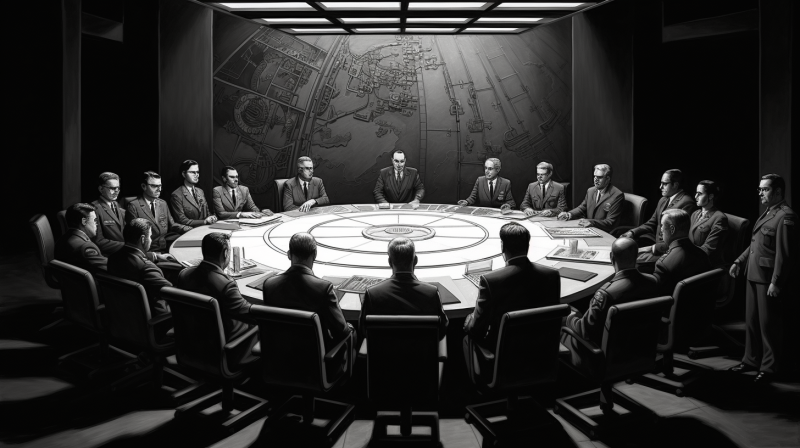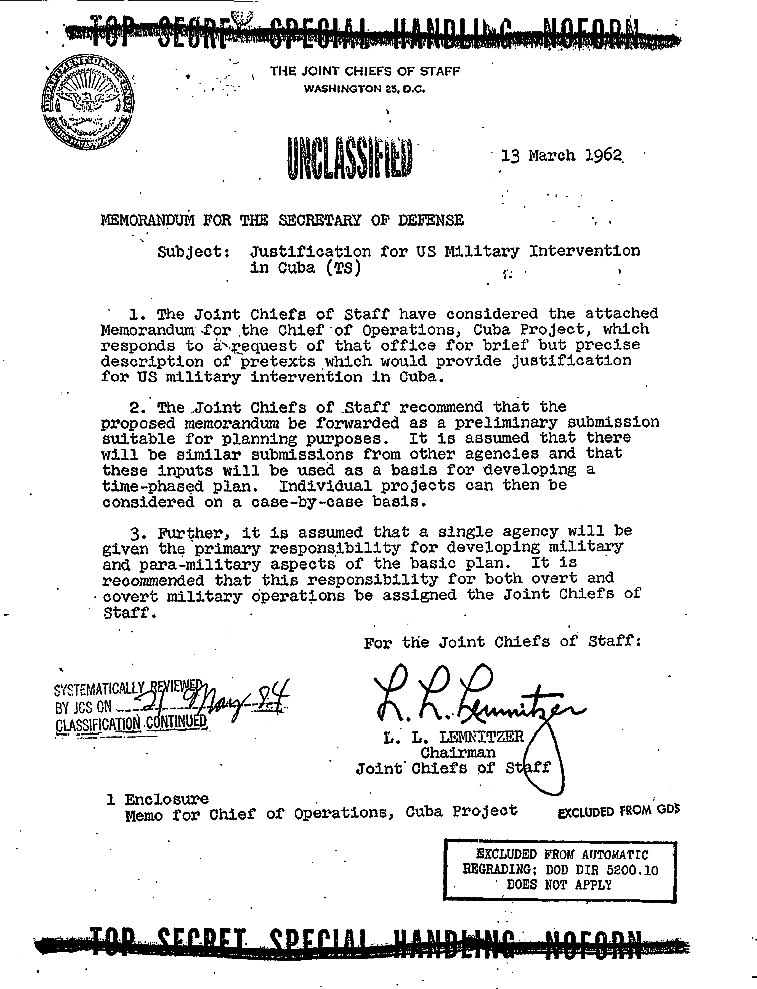
Every so often, history presents us with stories that sound more like Hollywood scripts than factual events. Among the pantheon of could-have-been episodes from the past, Operation Northwoods stands out as one of the most startling and controversial.
Rooted in the height of the Cold War, a period characterized by paranoia, propaganda, and political maneuvering, this proposal seems like a page from a John le Carré novel.
Imagine a top-secret Pentagon plan designed to drum up support for military action against a Cold War adversary. It is not fiction but a blueprint from the U.S. Department of Defense archives.
The very name, Operation Northwoods, evokes intrigue and secrecy. It unravels the smoky backrooms of power where the world’s fate hangs in the balance.
In the following paragraphs, we’ll journey through the labyrinthine corridors of Cold War espionage and strategy. We’ll shed light on Operation Northwoods and its place in history.
The Genesis of a Bold Proposal

So, what exactly was Operation Northwoods? It was a proposal designed by the U.S. Department of Defense and the Joint Chiefs of Staff.
The plan outlined potential false flag operations, wherein planned acts of terrorism would occur on American soil. Here’s the catch: the Cuban government would take the blame.
The idea was that these events would incite public and international support for a military intervention in Cuba. At the time, it was a budding communist stronghold just 90 miles off the American coast.
The Shocking Details
Delving into Operation Northwoods, you will see a series of startling propositions that seem ripped straight from a thriller novel. Among the various scenarios plotted:
Air Hijinks: Operation Northwoods suggested committing acts of terror on commercial airlines. It included faking the shooting down of a plane filled with college students.
Ship Sabotage: The proposal included sinking boats full of Cuban emigres on their way to Florida. It was to create a narrative of Castro’s aggression and brutality against his own people trying to escape his regime.
Urban Disturbances: Operation Northwoods even went so far as to suggest bombings in Miami and Washington D.C. These were to be paired with a series of phony communist Cuban terror campaigns, ensuring public outcry against the perceived threat.
Military Deception: Mock funerals for “fake victims” were discussed, coupled with the use of MiG-type aircraft by U.S. pilots to harass civil aviation and the army bases, painting the image of a persistent Cuban threat.The audacity of these proposals is astonishing. That senior officials could even draft, let alone consider, such actions under the banner of Operation Northwoods is an unnerving reflection of the era’s high-stakes tension and intrigue.
Why It Never Materialized
The existence of Operation Northwoods, while shocking, never translated into action, and for good reason. Upon reaching the Oval Office and being reviewed by President John F. Kennedy, the plan faced an immediate dead end. Here’s why:
JFK’s Stance: Known for his strong emphasis on diplomacy and cautious approach to Cold War tensions, Kennedy’s disposition didn’t align with such a deceptive strategy. His commitment to authentic international engagement made a plan like Operation Northwoods anathema to his leadership style.
Exposure Concerns: In the intricate web of espionage and counterintelligence, the risks of such a plot coming to light were high. If discovered, the U.S. would face domestic backlash and significant international condemnation, tarnishing its global reputation.
Escalation Fears: With the Cold War being a delicate dance of power dynamics, there was always the looming threat of unintentional escalation. Implementing a plan like Operation Northwoods could have inadvertently triggered a more significant military conflict with the Soviet Union, given their close ties with Cuba.
Ethical Reservations: Beyond strategy, there were undeniable ethical and moral reservations. The thought of endangering innocent lives for political gain was a line many within the administration weren’t willing to cross.The tangible and ethical perils surrounding Operation Northwoods were too significant to be ignored, leading to its prompt shelving.
Operation Northwoods in Modern Discourse
While Operation Northwoods never became a reality, its declassification in the late 1990s sparked debates, conspiracy theories, and re-evaluations of Cold War history.
The proposal became a linchpin for many conspiracy theorists. It provided “proof” that governments can and do consider taking extreme measures under the guise of larger objectives.
The document offers invaluable insights into the lengths nations might go to, the ethical lines they’re willing to toe, and the broader implications of political and military strategy.
Reflecting on Operation Northwoods: Lessons from a Cold War Controversy
Operation Northwoods serves as a cautionary tale and a stark reminder of the lengths to which geopolitical games can push nations.
While the plot reads like a suspense thriller, it underscores the fundamental and often dangerous interplay of politics, strategy, and ideology.
As we reflect on this chapter from the history archives, it’s an opportunity to appreciate the decisions taken. And, more importantly, the ones avoided.
